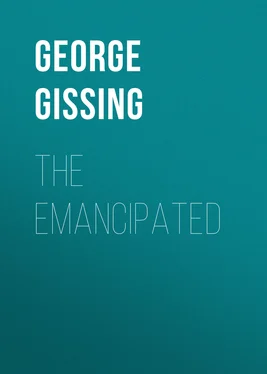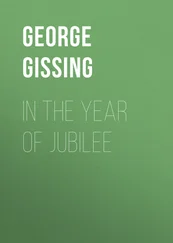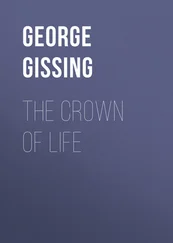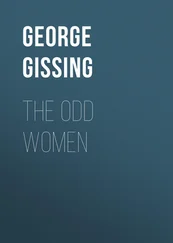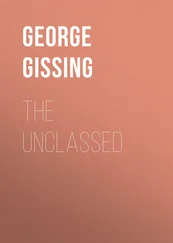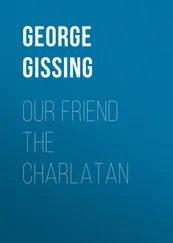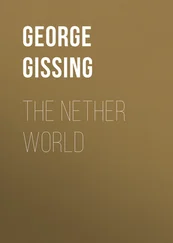George Gissing - The Emancipated
Здесь есть возможность читать онлайн «George Gissing - The Emancipated» — ознакомительный отрывок электронной книги совершенно бесплатно, а после прочтения отрывка купить полную версию. В некоторых случаях можно слушать аудио, скачать через торрент в формате fb2 и присутствует краткое содержание. Жанр: foreign_prose, literature_19, foreign_antique, на английском языке. Описание произведения, (предисловие) а так же отзывы посетителей доступны на портале библиотеки ЛибКат.
- Название:The Emancipated
- Автор:
- Жанр:
- Год:неизвестен
- ISBN:нет данных
- Рейтинг книги:3 / 5. Голосов: 1
-
Избранное:Добавить в избранное
- Отзывы:
-
Ваша оценка:
- 60
- 1
- 2
- 3
- 4
- 5
The Emancipated: краткое содержание, описание и аннотация
Предлагаем к чтению аннотацию, описание, краткое содержание или предисловие (зависит от того, что написал сам автор книги «The Emancipated»). Если вы не нашли необходимую информацию о книге — напишите в комментариях, мы постараемся отыскать её.
The Emancipated — читать онлайн ознакомительный отрывок
Ниже представлен текст книги, разбитый по страницам. Система сохранения места последней прочитанной страницы, позволяет с удобством читать онлайн бесплатно книгу «The Emancipated», без необходимости каждый раз заново искать на чём Вы остановились. Поставьте закладку, и сможете в любой момент перейти на страницу, на которой закончили чтение.
Интервал:
Закладка:
Then why not, in the name of common sense, cease to ponder such follies, and get on with the work which waited for him? Why this fluttering about a flame which scorched him more and more dangerously? It was not the first time that he had experienced temptations of this kind; a story of five years ago, its scene in London, should have reminded him that he could stand a desperate wrench when convinced that his life's purpose depended upon it. Here were three years of trusteeship before him—he could not, or would not, count on her marrying before she came of age. Her letters would still come; from time to time doubtless he must meet her. It had all resulted from this confounded journey taken together! Why, knowing himself sufficiently, did he consent to meet the people at Genoa, loitering there for a couple of days in expectancy? Why had he come to Italy at all just now?
The answers to all such angry queries were plain enough, however he had hitherto tried to avoid them. He was a lonely man like his father, but not content with loneliness; friendship was always strong to tempt him, and when the thought of something more than friendship had been suffered to take hold upon his imagination, it held with terrible grip, burning, torturing. He had come simply to meet Cecily; there was the long and short of it. It was a weakness, such as any man may be guilty of, particularly any artist who groans in lifelong solitude. Let it he recognized; let it be flung savagely into the past, like so many others encountered and overcome on his course.
The other day, when it was rainy and sunless, he had seemed all at once to find his freedom. In a moment of mental languor, he was able to view his position clearly, as though some other man were concerned, and to cry out that he had triumphed; but within the same hour an event befell which revived all the old trouble and added new. Reuben Elgar entered his room, coming directly from Villa Sannazaro, in a state of excitement, talking at once of Cecily Doran as though his acquaintance with her had been unbroken from the time when she was in his mother's care to now. Irritation immediately scattered the thoughts Mallard had been ranging; he could barely make a show of amicable behaviour; a cold fear began to creep about his heart. The next morning he woke to a new phase of his conflict, the end further off than ever. Unable to command thought and feeling, he preserved at least the control of his action, and could persevere in the resolve not to see Cecily; to avoid casual meetings he kept away even from the Spences. He shunned all places likely to be visited by Cecily, and either sat at home in dull idleness or strayed about the swarming quarters of the town, trying to entertain himself with the spectacle of Neapolitan life. To-day the delicious weather had drawn him forth in a heedless mood. And, indeed, it did not much matter now whether he met his friends or not; he had spoken the word—to-morrow he would go his way.
At the very moment of thinking this thought, when his cigar was nearly finished and he had begun to stretch his limbs, wearied by remaining in one position, shadows and footsteps approached him. He looked up, and—
"Mr. Mallard! So we have caught you at last! It only needed this to complete our enjoyment. Now you will go across to Raise with us."
Cecily, with Mrs. Baske and Spence. She had run eagerly forward, and her companions were advancing at a more sober pace. Mallard rose with his grim smile, and of course forgot that it is customary to doff one's beaver when ladies approach; he took the offered hand, said "How do you do?" and turned to the others.
"A fair capture!" exclaimed Spence. "Just now, at lunch, we were speculating on such a chance. The cigar argues a broken fast, I take it."
"Yes, I have had my maccheroni."
"We are going to take a boat over to Bale. Suppose you come with us."
"Of course Mr. Mallard will come," said Cecily, her face radiant. "He can make no pretence of work interrupted."
Already the group was surrounded by boatmen offering their services. Spence led the way down to the quay, and after much tumult a boat was selected and a bargain struck, the original demand made by the artless sailors being of course five times as much as was ever paid for the transit. They rowed out through the cluster of little craft, then hoisted a sail, and glided smoothly over the blue water.
"Where is Mrs. Lessingham?" Mallard inquired of Cecily.
"At the Hotel Bristol, with some very disagreeable people who have just landed on their way from India—a military gentleman, and a more military lady, and a most military son, relatives of ours. We spent last evening with them, and I implored to be let off to-day."
Mallard propped himself idly, and from under the shadow of his hat often looked at her. He had begun to wonder at the unreserved joy with which she greeted his joining the party. Of course she could have no slightest suspicion of what was in his mind; one moment's thought of him in such a light must have altered her behaviour immediately. Altered in what way? That he in vain tried to imagine; his knowledge of her did not go far enough. But he could not be wrong in attributing unconsciousness to her. Moreover, with the inconsistency of a man in his plight, he resented it. To sit thus, almost touching him, gazing freely into his face, and yet to be in complete ignorance of suffering which racked him, seemed incompatible with fine qualities either of heart or mind. What rubbish was talked about woman's insight, about her delicate sympathies!
"Mrs. Spence is very sorry not to see you occasionally, Mr. Mallard."
It was Miriam who spoke. Mallard was watching Cecily, and now, on turning his head, he felt sure that Mrs. Baske had been observant of his countenance. Her eyes fell whilst he was seeking words for a reply.
"I shall call to see her to-morrow morning," he said, "just to say good-bye for a time."
"You really go to-morrow?" asked Cecily, with interest, but nothing more.
"Yes. I hope to see Mrs. Lessingham for a moment also. Can you tell me when she is likely to be at home?"
"Certainly between two and three, if you could come then."
He waited a little, then looked unexpectedly at Miriam. Again her eyes were fixed on him, and again they fell with something of consciousness. Did she , perchance, understand him?
His speculations concerning Cecily became comparative. In point of age, the distance between Cecily and Miriam was of some importance; the fact that the elder had been a married woman was of still more account. On the first day of his meeting with Mrs. Baske, he had thought a good deal about her; since then she had slipped from his mind, but now he felt his interest reviving. Surely she was as remote from him as a woman well could be, yet his attitude towards her had no character of intolerance; he half wished that he could form a closer acquaintance with her. At present, the thought of calm conversation with such a woman made a soothing contrast to the riot excited in him by Cecily. Did she read his mind? For one thing, it was not impossible that the Spences had spoken freely in her presence of himself and his odd relations to the girl; there was no doubting how they regarded him. Possibly he was a frequent subject of discussion between Eleanor and her cousin. Mature women could talk with each other freely of these things.
On the other hand, whatever Mrs. Lessingham might have in her mind, she certainly would not expose it in dialogue with her niece. Cecily was in an unusual position for a girl of her age; she had, he believed, no intimate friend; at all events, she had none who also knew him. Girls, to be sure, had their own way of talking over delicate points, just as married women had theirs, and with intimates of the ordinary kind Cecily must have come by now to consider her guardian as a male creature of flesh and blood. What did it mean, that she did not?
Читать дальшеИнтервал:
Закладка:
Похожие книги на «The Emancipated»
Представляем Вашему вниманию похожие книги на «The Emancipated» списком для выбора. Мы отобрали схожую по названию и смыслу литературу в надежде предоставить читателям больше вариантов отыскать новые, интересные, ещё непрочитанные произведения.
Обсуждение, отзывы о книге «The Emancipated» и просто собственные мнения читателей. Оставьте ваши комментарии, напишите, что Вы думаете о произведении, его смысле или главных героях. Укажите что конкретно понравилось, а что нет, и почему Вы так считаете.
